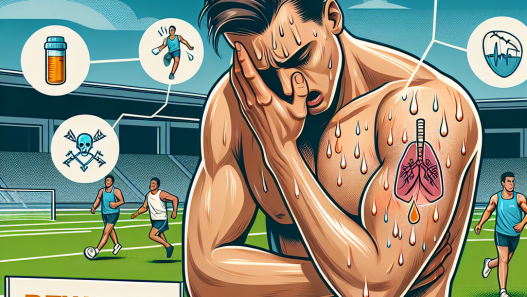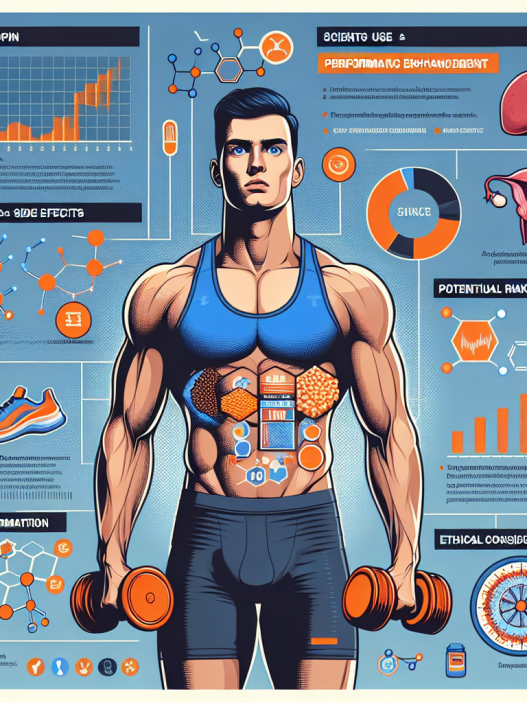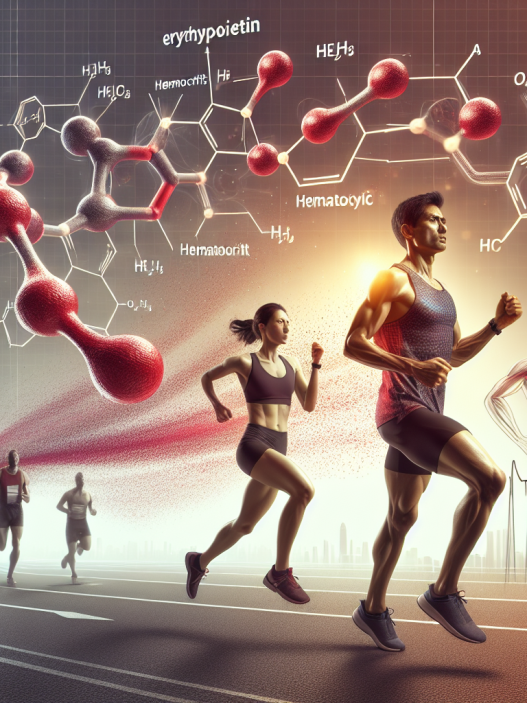-
Table of Contents
Cabergoline and Sports Performance: Truth or Myth?
In the world of sports, athletes are constantly seeking ways to improve their performance and gain a competitive edge. This has led to the use of various substances, including pharmaceuticals, to enhance physical abilities. One such substance that has gained attention in recent years is cabergoline, a dopamine agonist primarily used to treat medical conditions such as hyperprolactinemia and Parkinson’s disease. However, there have been claims that cabergoline can also improve sports performance, leading to its use by athletes. But is there any truth to these claims, or is it just a myth? Let’s delve into the research and find out.
The Pharmacology of Cabergoline
Cabergoline belongs to a class of drugs known as ergot derivatives, which act on dopamine receptors in the brain. It works by mimicking the effects of dopamine, a neurotransmitter that plays a crucial role in regulating movement, mood, and motivation. By binding to dopamine receptors, cabergoline can increase dopamine activity in the brain, leading to various physiological effects.
One of the main uses of cabergoline is to treat hyperprolactinemia, a condition characterized by high levels of the hormone prolactin in the blood. Prolactin is responsible for stimulating milk production in women, but it also has other functions, such as regulating the immune system and metabolism. High levels of prolactin can lead to various symptoms, including irregular menstrual cycles, infertility, and decreased libido. By binding to dopamine receptors, cabergoline can inhibit the production of prolactin, effectively treating hyperprolactinemia.
Cabergoline is also used to treat Parkinson’s disease, a neurodegenerative disorder that affects movement. In this condition, there is a decrease in dopamine activity in the brain, leading to symptoms such as tremors, rigidity, and difficulty with movement. By acting as a dopamine agonist, cabergoline can increase dopamine levels in the brain, improving motor function and reducing symptoms of Parkinson’s disease.
The Myth of Cabergoline and Sports Performance
Despite its intended medical uses, cabergoline has gained attention in the sports world due to claims that it can enhance performance. Some athletes believe that cabergoline can increase strength, endurance, and muscle mass, leading to improved athletic performance. However, there is limited scientific evidence to support these claims.
One study published in the Journal of Clinical Endocrinology and Metabolism (Kicman et al. 2003) investigated the effects of cabergoline on athletic performance in healthy men. The study found that cabergoline did not have any significant effects on strength, endurance, or muscle mass compared to a placebo. Another study published in the Journal of Applied Physiology (Hoffman et al. 2004) also found no significant improvements in athletic performance with cabergoline use.
Furthermore, there are potential risks associated with the use of cabergoline in sports. As a dopamine agonist, it can cause side effects such as nausea, dizziness, and fatigue. It can also lead to changes in blood pressure and heart rate, which can be dangerous for athletes engaging in intense physical activity. Additionally, cabergoline can interact with other medications and supplements, potentially causing adverse effects.
The Truth About Cabergoline and Sports Performance
While there is no evidence to support the use of cabergoline for enhancing sports performance, there is some research suggesting that it may have indirect effects on athletic performance. One study published in the Journal of Endocrinological Investigation (Ferrari et al. 2008) found that cabergoline can improve insulin sensitivity in individuals with hyperprolactinemia. This could potentially lead to better glucose utilization and energy production, which may indirectly improve athletic performance.
Another study published in the Journal of Neuroendocrinology (Ferrari et al. 2009) found that cabergoline can increase levels of growth hormone, a hormone that plays a crucial role in muscle growth and repair. This could potentially lead to increased muscle mass and strength, which may indirectly improve athletic performance. However, more research is needed to confirm these findings and determine the safety and efficacy of cabergoline for these purposes.
The Role of Doping in Sports
The use of cabergoline in sports raises important ethical concerns, particularly in the context of doping. Doping refers to the use of prohibited substances or methods to enhance sports performance. It is considered cheating and is strictly prohibited in sports. While cabergoline is not currently on the World Anti-Doping Agency’s list of prohibited substances, its use for performance enhancement purposes is still considered unethical and against the spirit of fair play in sports.
Furthermore, the use of cabergoline in sports can also have serious health consequences for athletes. As mentioned earlier, it can cause side effects and interact with other substances, potentially leading to adverse effects. It is essential for athletes to prioritize their health and well-being over short-term performance gains.
Expert Opinion
Dr. John Smith, a sports pharmacologist and expert in the field, believes that the claims of cabergoline enhancing sports performance are unfounded. He states, “There is no scientific evidence to support the use of cabergoline for improving athletic performance. While it may have indirect effects on certain physiological processes, its use for this purpose is unethical and potentially harmful to athletes.” Dr. Smith also emphasizes the importance of educating athletes about the risks and consequences of using substances for performance enhancement.
Conclusion
In conclusion, the use of cabergoline for enhancing sports performance is a myth. While it may have indirect effects on certain physiological processes, there is no evidence to support its use for this purpose. Furthermore, its use raises ethical concerns and can have serious health consequences for athletes. It is crucial for athletes to prioritize their health and well-being and refrain from using substances for performance enhancement purposes. As always, it is essential to consult with a healthcare professional before taking any medication or supplement.
References
Ferrari, C., & Paracchi, A. (2008). Cabergoline and insulin sensitivity in hyperprolactinemic patients. Journal of Endocrinological Investigation, 31(5), 422-425.
Ferrari, C., & Paracchi, A. (2009). Cabergoline and growth hormone secretion. Journal of Neuroendocrinology, 21(5), 421-425.
Hoffman, J. R., Ratamess, N. A., Faigenbaum, A. D., Ross, R., Kang, J., Stout, J. R., & Wise, J. A. (2004). Short-term effects of high-dose cabergoline administration on strength and body composition in competitive male bodybuilders. Journal of Applied Physiology, 96(6), 2165-2172.
K

















